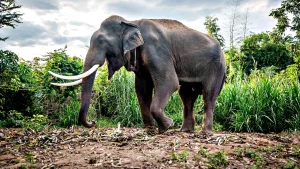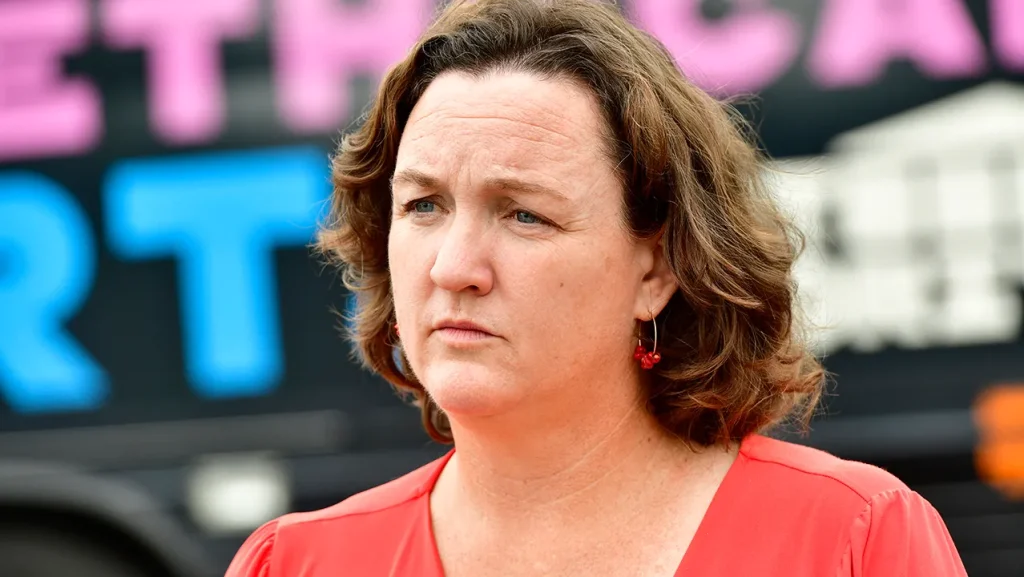Porter and Steyer Clash in California Gubernatorial Race: A Tale of Political Hypocrisy
In the high-stakes race to become California’s next governor, former Congresswoman Katie Porter and billionaire activist Tom Steyer have begun trading barbs, highlighting what some observers call the increasingly contentious nature of Democratic politics in the Golden State. After Steyer announced his candidacy on Wednesday, Porter quickly took to social media to question his credibility, writing, “A new billionaire in our race claims he’ll fight the very industries he got rich helping grow — fossil fuel companies, tobacco, and private immigration detention facilities — at great cost to Californians. I call bulls—.” Her criticism focused on Steyer’s past investments in the very industries he now pledges to fight against, including a pointed reference to his investments in tobacco companies while simultaneously appearing in advertisements supporting a tobacco tax increase.
What makes this exchange particularly noteworthy is that Federal Election Commission filings reveal Porter herself has accepted more than $16,000 in contributions from Steyer between 2018 and 2023, spanning both her House campaigns and her unsuccessful Senate bid. This apparent contradiction has led to accusations of hypocrisy, with one anonymous Democratic strategist telling Fox News Digital, “Katie Porter is the ultimate hypocrite and all she’s done in this race is step on one rake after another. This is easily the most disastrous race a Democrat has been running in 2026, which is why Porter is a real liability at the top of the ticket and why Democrats are looking around for alternatives.” When approached for comment on this financial relationship with Steyer, Porter’s campaign did not respond to requests.
Steyer, who unsuccessfully ran for president in 2020, enters an already crowded field seeking to succeed Governor Gavin Newsom. In his announcement, the billionaire emphasized his commitment to making life more affordable for working-class Californians and challenging corporate interests, particularly in the oil and tobacco industries. His vast personal wealth, which allowed him to self-finance his presidential campaign, is likely to become a target for his opponents. Former state controller Betty Yee, another Democratic candidate in the race, quickly criticized Steyer’s candidacy, saying, “Tom Steyer tried to buy the presidency — and he failed. The California governorship is not going to be his consolation prize.” This suggests that Steyer’s financial resources will be both an advantage and a vulnerability in the crowded field.
Porter’s campaign has faced other challenges beyond her criticism of Steyer. She recently drew negative attention after abruptly ending a CBS interview when questioned about appealing to Trump voters in California. When asked how she would reach the approximately 40% of California voters who supported Trump, Porter questioned the premise of the inquiry, arguing she didn’t need those votes to win, especially if facing another Democrat in the general election. As the exchange grew tense, Porter dismissed the interview as “unnecessarily argumentative” and walked away, saying, “I don’t want to keep doing this, I’m going to call it.” When reminded that other candidates had answered the same question, Porter responded bluntly, “I don’t care.” This interaction has fed into concerns about her temperament and approach to media engagement.
Further complicating Porter’s candidacy are allegations about her treatment of staff. In a single week, three separate videos reportedly went viral showing Porter berating her staffers. These incidents have raised questions about her leadership style and ability to build the necessary relationships to govern effectively. Such concerns could prove particularly problematic in a race where personal qualities and management style may become deciding factors for voters looking for a leader who can navigate California’s complex political landscape and address the state’s numerous challenges, from housing affordability to climate change.
The California gubernatorial race has attracted numerous high-profile candidates beyond Porter and Steyer. Former Los Angeles Mayor Antonio Villaraigosa and former U.S. Health and Human Services Secretary Xavier Becerra bring significant name recognition and political experience to the contest. Other candidates include state Schools Superintendent Tony Thurmond, former Controller Betty Yee, and former Assemblyman Ian Calderon. While former Vice President Kamala Harris was reportedly considering entering the race, she ultimately decided against it. This crowded field of Democratic heavyweights reflects the importance of California’s governorship as one of the most powerful and influential executive positions in American politics outside of the White House, overseeing the world’s fifth-largest economy and setting policy that often influences national trends.















